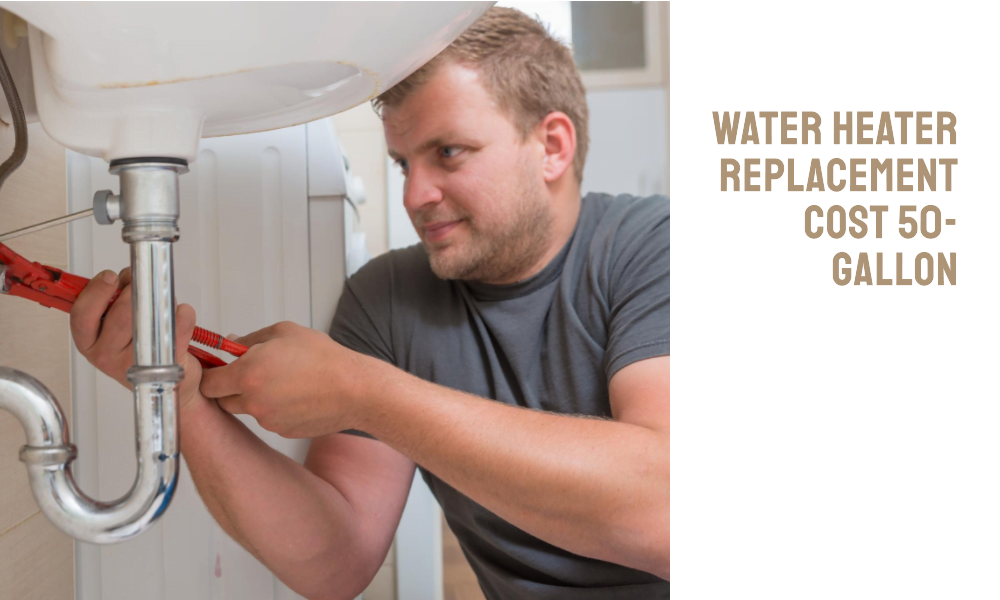Water heaters are the unsung heroes of our homes, dutifully serving us hot showers and warm water for our chores. However, like all appliances, they have a lifespan, and at some point, replacement becomes necessary. If you’re contemplating the replacement cost for a 50-gallon water heater, you’re in the right place. This article sheds light on every facet of this topic, ensuring you’re well-informed.
Initial Cost Considerations
- Type of Heater: The cost largely depends on whether you opt for a tankless, solar, or traditional tank-type water heater. While tank-type heaters might be cheaper initially, tankless units can save more in the long run due to their energy efficiency.
- Energy Source: Gas heaters are generally more expensive than electric ones. But they might be cheaper to operate, depending on local utility rates.
- Brand and Quality: Renowned brands may charge a premium, but they also tend to offer extended warranties and better customer service.
Installation Charges
Never underestimate the role of a professional installation. While the unit itself is a substantial cost, labor charges can range from $300 to $600, depending on your area and the complexity of the job.
Additional Components & Services
The replacement might require the purchase of new components like expansion tanks, water and gas connectors, or pressure relief valves. Also, consider potential costs for permits or the disposal of your old unit.
Long-Term Value
Investing in a high-efficiency, ENERGY STAR rated heater might cost more upfront but will save you money on monthly utility bills.
Potential Rebates and Incentives
Look into local or federal tax incentives for eco-friendly and energy-efficient models. They can offset the initial replacement cost substantially.
Hidden Costs
Lastly, be wary of possible hidden costs. Does your home need any structural modifications to accommodate the new unit? Is there a need for electrical upgrades?
Frequently Asked Questions
-
Q: How often should I replace my 50-gallon water heater?
- A: Typically, traditional tank-type water heaters last 10-15 years, while tankless units can last up to 20 years with proper maintenance.
-
Q: Can I install the water heater myself?
- A: It’s recommended to have a professional handle the installation to ensure safety and efficiency, especially with gas units.
-
Q: Are energy-efficient models worth the extra cost?
- A: Yes. While they have a higher upfront cost, the savings on utility bills over time can make them more economical.
-
Q: How do I dispose of my old water heater?
- A: Many installation professionals offer disposal services. If not, check local regulations on proper disposal methods.
Conclusion
Replacing a 50-gallon water heater involves several cost components, from the unit itself to installation and possible additional charges. Being informed about these facets will ensure you make a decision that’s both economical and beneficial in the long run. Remember, investing in a quality unit can provide long-term savings, making the initial expenditure worthwhile.

